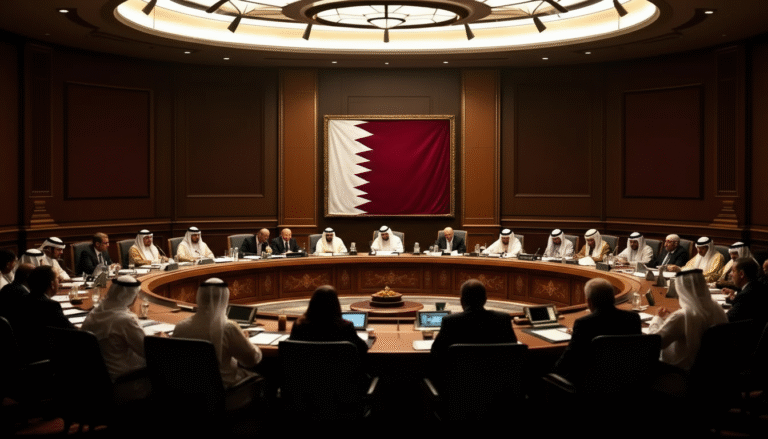+ summary
This summary was generated by artificial intelligence and reviewed by the editorial team at Voice Of Emirates.
- The Doha Summit reflects a historic shift in Arab and Islamic politics following the Israeli aggression.
- Many Arab capitals expressed their solidarity with Qatar, reflecting Arab unity.
- The summit represents a test of political will, and calls are growing for effective action rather than mere condemnation.
- Unprecedented international consensus highlights shifts in attitude toward Israeli attack.
- Emotional rhetoric alone is no longer sufficient, and the summit must adopt institutional mechanisms for coordination.
Cairo, Egypt – The emergency Doha Summit is no longer a passing diplomatic event but a pivotal milestone in the record of Arab and Islamic politics. Its convening comes at a heated moment following the Israeli aggression against the Qatari capital, at a time when the Arab and Islamic streets are awaiting serious stances that go beyond the usual statements—steps that would lay the foundations for a new phase of real solidarity and put an end to the Israeli recklessness that has crossed every line.
Broad Arab Solidarity
From the earliest hours of the aggression, Arab capitals rushed to declare their full solidarity with Qatar and their absolute rejection of any violation of its sovereignty. The United Arab Emirates took the lead, as His Highness Sheikh Mohammed bin Zayed Al Nahyan launched a rapid diplomatic tour that included several regional and international capitals, sending a clear message that targeting Doha is targeting all Arab capitals, and that unity at this stage is no longer a choice but an existential necessity.
This Emirati move opened the door to broad Arab cohesion, as statements of support poured in from Egypt, Saudi Arabia, Kuwait, Bahrain, Morocco, Tunisia, and others. The scene underscored that the aggression against Qatar has revived the long-dormant spirit of Arab and Islamic solidarity.
U.S. Responsibility Under the Microscope
Dr. Naji Al-Shihabi, head of Egypt’s Generation Party, told Voice of Emirates that the summit is an indispensable necessity, stressing that the United States bears full responsibility for the aggression against Doha, describing it as the “official sponsor of the occupying state.”
He added that Arab leaders are now in the phase of writing their history, and that the decisions they issue will remain as testimony before their peoples and future generations.
Unprecedented International Consensus
From Doha, Qatari writer and researcher Ali Al-Hail described the lead-up to the summit as “stunning,” pointing out that, for the first time, the UN Security Council witnessed a rare consensus among its 14 members—including the United States—on condemning the Israeli attack on Qatar.
Al-Hail told Voice of Emirates: “This time, the truth insisted on prevailing, after the world had grown accustomed to the American veto or abstention from voting against Israel.”
He warned: “The situation cannot tolerate the passivity of the past. If Israel is not deterred, its harm will reach everyone.”
The Need to Move Beyond Condemnations
In the same context, Dr. Diaa Rashwan, former head of the Egyptian Journalists’ Syndicate, stressed to Voice of Emiratesthat the summit is a real test of Arab and Islamic political will.
He affirmed that condemnations are no longer sufficient, calling for the translation of public anger into clear practical steps, whether through coordinated diplomatic moves or by exerting economic and political pressure on Israel’s supporters.
A Research Perspective from Cairo
Meanwhile, Dr. Ammar Ali Hassan, Egyptian writer, researcher, and professor of political science, stressed that the Doha Summit comes at a decisive regional moment.
He told Voice of Emirates that the region is on a hot plate, and if Arabs and Muslims do not unite now, they will be unable to confront escalating challenges later.
He added that emotional rhetoric is no longer enough, stressing the need for the summit to adopt institutional mechanisms for coordination and joint action to ensure that its decisions endure and do not dissolve over time.
A Turning Point in the Region’s History
Statements and positions converge on the fact that the Doha Summit will not be just another emergency meeting, but rather a decisive milestone in the path of Arab and Islamic solidarity, and an opportunity to halt the escalating Israeli lawlessness. It is a moment that places leaders before a historic responsibility: either to settle for statements of denunciation and condemnation, or to move toward practical decisions capable of changing the equation.

